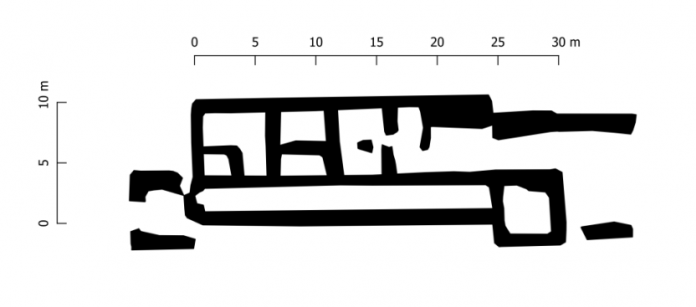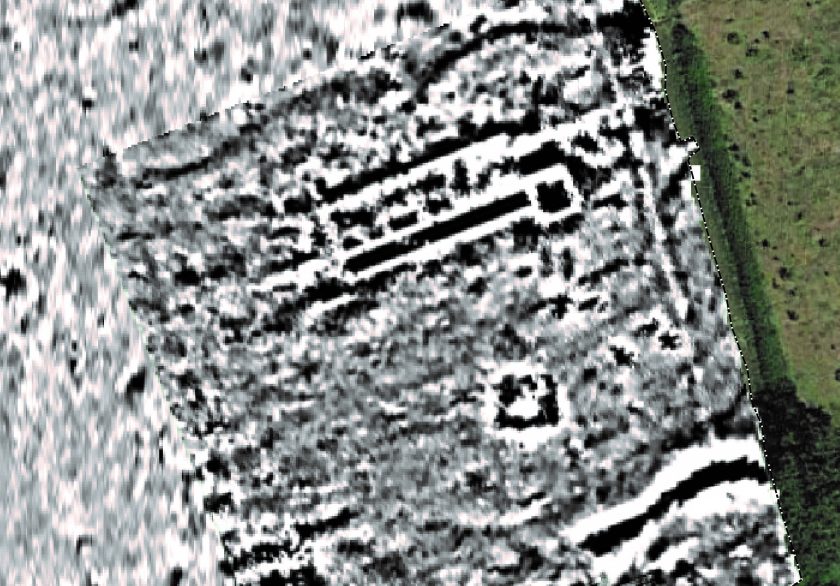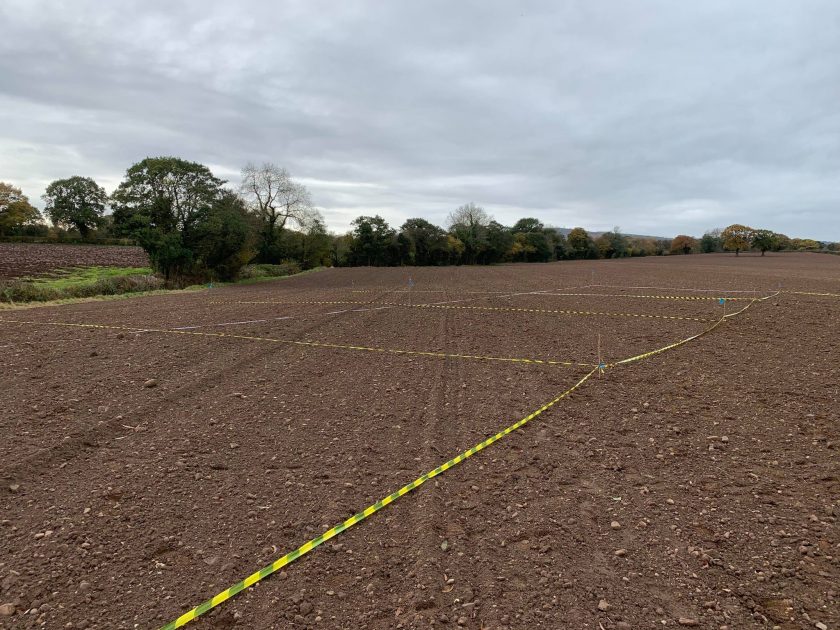Roman villa found near Rossett – “First of its kind ever to be discovered in north east Wales”

Archaeologists from Wrexham Museum, the University of Chester and Archaeological Survey West have discovered a Roman villa near Rossett.
They say villa is the first of its kind ever to be discovered in north east Wales and represents an exciting addition to our knowledge of the area during the Roman period.
This lunchtime it has been explained by Wrexham Council, “The site was discovered through the cooperation of local metal detectorists who discovered Roman material at the site, this sparked a remote sensing survey which revealed clear evidence of a buried structure. The remains appear to be of a fairly typical form with a number of stone and tile buildings surrounding a central courtyard, the survey also suggested its association with a field system, a trackway and other related buildings and structures.”
Fieldwalking at the site has yielded artefacts from the late 1st century to the early 4th century AD, suggesting that the villa was occupied for the majority of Roman rule in Britain.
Dr Caroline Pudney, Senior Lecturer in Archaeology at the University of Chester said: “This exciting discovery potentially alters our understanding of north east Wales in the wake of the Roman conquest. Previous interpretations suggest that most people in this area either lived in settlements associated with Roman military sites or in quite simple farmsteads that continued to utilise Iron Age roundhouse architectural forms. The identification of the villa now questions this narrative.”
Councillor Hugh Jones, Lead Member for People at Wrexham Council and the local Member for the Rossett ward said: “This discovery is remarkable and just goes to underline the significant number of fantastic archaeological discoveries that have taken place in and around Rossett in recent years, whether it be Bronze Age such as the wonderful Burton Hoard or the Roman lead pig (or ingot) that is currently on display at the Museum.”
Wrexham Museum and the University of Chester are now planning a programme of work to further investigate the site over the next few years subject to funding and appropriate permissions. The work on the project to date has been funded by the Roman Research Trust and supported by Wrexham Museum and the University of Chester.
Spotted something? Got a story? Email [email protected]














